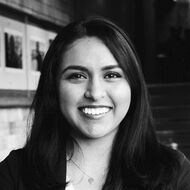Why I Teach, Even (Especially) When There's No School
Teachers are facing the test of a lifetime. Here’s why they’re not backing down.
What's been on the minds of teachers as the school shutdown has continued through the end of the school year?
This spring we asked teachers three questions: What was your "why" when you joined the Teach For America teaching corps? What was it at the start of the school year? Given COVID-19, what drives you now?
Kenneth Robinson (D.C. Region ’93), fourth and fifth grade math teacher at Hendley Elementary School in Washington, D.C.
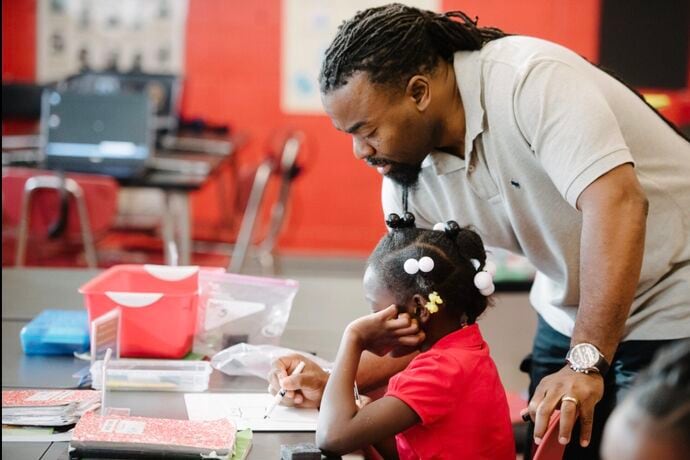
Then: I grew up on an Air Force base. My dad was a master sergeant, and my mother was a nurse. My dad would coach basketball and baseball on the base, and I would hear kids talk to their parents about something my dad had taught them. Then when I was a junior and senior in college, I sat in a cubicle with the IRS working as a tax auditor. It didn’t feel like anything. I wasn’t giving back. My friend Derrick Scretchen (D.C. Region ’92) eventually told me about Teach For America and I applied.
Start of the School Year: I’ve been at my school for 27 years. I don’t leave the classroom because sometimes I think that others couldn’t do what I do. That might sound cocky, but I want to be there for my kids. And I want to be there for the young teachers at our school and share with them what I know. I’ve learned from the younger teachers as well. You can’t do what you did in 2000. We’re in 2020 now.
Now: I don’t want my kids to feel abandoned. We’re needed every single day. We do a lot more than just teach. Sometimes we’re just talking. My kids know that I love them. My wife and kids laugh when they hear my students say, “I love you, Mr. Robinson,” and they hear the same response from me.
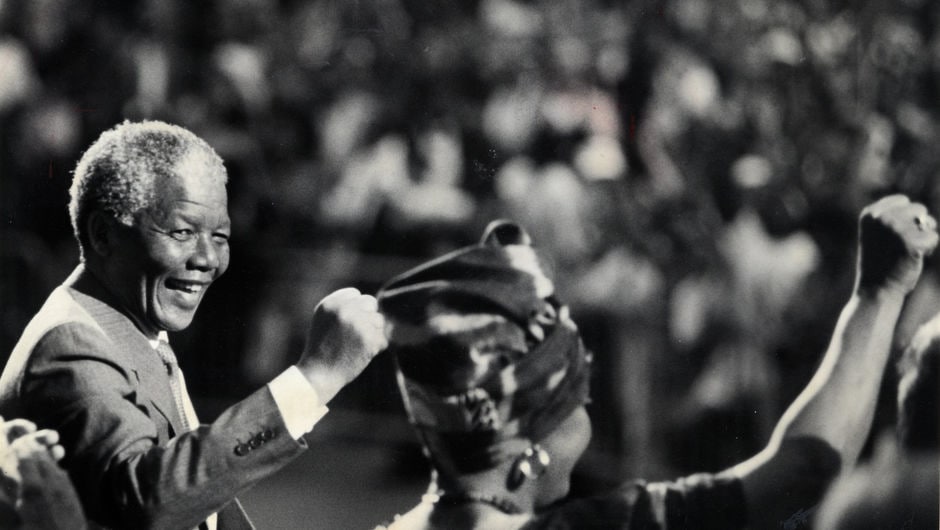
Kara Ganley (R.G.V. ’94), eighth grade science teacher at Charles R. Drew Middle School in Los Angeles
Then: I felt the educational system was doing a disservice to special education students. I had been told many times in my life that I would not be able to accomplish much academically because of my dyslexia. Apartheid [in South Africa] was a big issue at the time. Nelson Mandela came to Boston in 1990. I went to see him speak, and that really influenced me too.
Start of the School Year: I don’t have a lot of girls in my class now. It’s the boys’ issues of inequity that I deal with. I partnered with the Social Justice Learning Institute in Inglewood to teach an elective called Urban Scholars. It addresses issues affecting men of color, social justice issues within their communities. The elective empowers and teaches them resiliency.
Now: I pretty much panicked when they told us we were going to do distance learning because I don’t have internet. Starbucks is not open. What am I going to do? I think that the district needs to provide internet for free because education is supposed to be free. We’re not supposed to charge students for educational tools that are required for learning.
Serena Keeney-Horsch (N.Y. ’95), dual language coordinator and focus teacher at Washington Grove Elementary School in Gaithersburg, Maryland
Then: The L.A. riots and the Rodney King verdict had a huge impact. I went to school at Occidental College, right by where it was happening. So we got to talk about the inequities in our system, like the school-to-prison pipeline. My “why” at the beginning was to give back because I felt like if you had privilege, it was your responsibility to give access to privilege. When I went to the Bronx and started teaching, I was blown away. The inequities were now in my face.
Start of the School Year: I work in dual language. Research has shown that it is one of the strongest, most powerful ways to close the gap in education, especially among our students of color. I fight on a daily basis to ensure our students have access to English and Spanish. We work hard on making sure that they will be bilingual and biliterate by the end of elementary school, and that they can become their own advocates and advocates for others around them. I fight for them to be exposed to the same grade-level curriculum that all students in our country are exposed to. I believe that knowing two, three, maybe four languages is a way to close the educational gap and the equity gap.
Now: To ensure equity, we have to do what it takes to get our students to online education. I’ve spent mornings and afternoons on phone calls with parents, helping them set up Chromebooks and get on Zoom. I had a mom who is literate only in Spanish and we spent about two hours trying to get her daughter online (she hadn’t been online for two weeks). Imagine how challenging that is when all the systems are in English. She had to describe to me what she saw on her screen and when she got on, we both screamed. The bravery, courage and determination that our families demonstrate to get their kids online is really inspiring.
Mike Loeb (N.Y. ’08), seventh grade science teacher at Urban Institute of Mathematics in the Bronx, New York
Then: I was a camp counselor in high school and college at an all-boys sports camp that was overwhelmingly white and privileged. Then I went to George Washington University and had an internship at a public high school in the heart of D.C. I was working with a wonderful English and journalism teacher who had a sound booth in his classroom, and kids would go in there and record radio programs. There were life circumstances that were challenging the students I helped serve in D.C. I was struck by the dichotomy in life circumstances between the campers and the students I worked with.
Start of the School Year: I’m my school’s teacher union representative, elected by my peers now for nine years, which really puts me in the mix of school policy. As a science teacher, I want to empower students to own the issues of the day. I want to inspire them to solve our science problems like climate change, nuclear weapons, and things of that nature.
Now: As a seventh grade science teacher I'm thinking of all the students who've done so well in my (in-school) class all year. Can this kid be ready at the start of September for an advanced eighth grade science class? I think about that every week. There are a lot of kids who I think are close. I can’t give them the same rigorous instruction when I’m not with them every day. I can assign work that’s really hard but that’s not the same thing as rigorous instruction. My heart breaks when I know there are kids who would have been in that advanced class and I’m having doubts that they will be now, because of coronavirus.
Telia Kapteyn (N.Y. ’09), third grade teacher at Brooke Roslindale Charter School in Boston
Then: In 2008, we were living in a world of uncertainty. The economy was suffering, people were losing their jobs, and that made doubly clear how inequitable our society was. It left me feeling hungry to make an impact, and my natural inclination was to do that through education. Some of my most formative experiences had come in the classroom, and I understood its power in bridging socioeconomic gaps.
Start of the School Year: A quality education is intrinsically linked to social justice, particularly in the communities most prevalent within my school. It’s critical to ensure that students feel empowered to make an impact on both micro and macro levels. That’s never been more true than in this election year, when arming them with information and perspective can help inspire their belief that change is possible.
Now: In a time of such uncertainty, kids need to believe in the power of their own abilities, even when things are happening outside of their control. For example, some of my students are helping their families make masks and donating them to assisted living communities or local hospitals. Others are checking in on friends and neighbors. These might feel like small acts, but they inspire confidence and agency in a scary situation.
Valeria Escobedo (San Antonio ’10), ninth and 11th grade English teacher at Western School of Science and Technology in Phoenix
Then: I wanted to join because I wanted students to be heard. I am a first-generation Mexican-American. I grew up in a border city. I learned to speak English at school. I was an education major in college, and I was really into the Teach For America mission because I knew that I would be teaching in a classroom similar to the one I was in. I wanted to tell students, “Yes, you can do it.”
Start of the School Year: Obviously, I'm an English Language Arts teacher so I do enjoy all kinds of stories, but aside from that, I teach my students that there's power in their words, in their own story. I try to explain this to them year after year: If you don't tell your story, someone else will do it for you and they're going to get it wrong.
Now: My focus is to help my students understand the importance of knowing the right information and being able to recognize reputable sources. No one can escape the news and what's going on. I hope my students understand that getting data and facts from sources, from people who are experts and have been studying this, is important, and that they’re able to navigate that data in order to make the best decisions moving forward.
Janae’ Cohen (Houston ’11), gifted support teacher at Red Oak Elementary in Stockbridge, Georgia
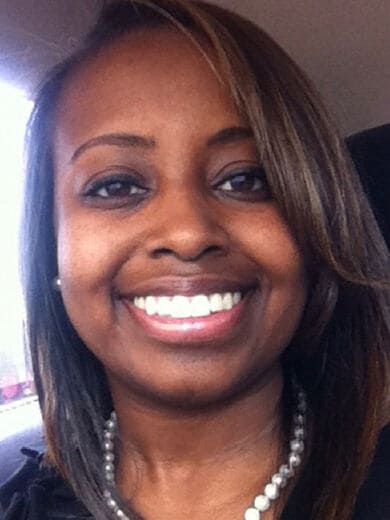
Then: I was a journalism major. By my senior year, I knew that journalism was not the route I wanted to take. I came across an email that Teach For America needed a campus campaign coordinator. I believed in the mission but didn’t think I would join the corps. However, through the recruitment efforts on my campus that year, I recruited myself. I reflected on my education trajectory over the years, and I literally remembered being in school and having a teacher kick his feet up on the desk and say, “I’m just here for a paycheck.” I felt like no child should ever have to experience that.
Start of the School Year: There is one issue that I’m passionate about, and that’s high-stakes testing. I don’t think that any school or child should be defined solely by numbers. I do believe in measures and growth. However, my hope is that we can move to a place where we consider several factors that determine a student’s success over the year, and not just this one test that everyone takes in the spring and there’s so much anxiety around. I hope that every child, regardless of what type of measure that they have to take, can view it as a serious opportunity to show what they know and not a daunting feeling of being defeated before they even pick up their pencil.
Now: I have a lot of concerns. It breaks my heart knowing there are students who I haven't heard from since school was cancelled. Despite having made attempts to reach out, it still lingers in the back of my mind—are my kids OK? How are they dealing with not being able to come to school? Are they engaging in some type of reading for 20 minutes a day?
Laura Lavery (Memphis ’11), Spanish teacher at Poplar Grove Middle School in Franklin, Tennessee
Then: At graduate school, we had to do an external internship. I was getting clinical experience in more of a rural environment. While there, I noticed the limited resources of the teachers and students alike who were doing the best that they could with what they had. Being there really showed me the urgency that we need to equip students with the resources to be successful, and it shouldn’t matter where the child resides.
Start of the School Year: I want to help my students advocate for themselves. I see a lot of my students’ families who want to advocate without always knowing how or being equipped with the resources or time. I reached out to my state representative and invited him into the classroom for what we called Adulting 101. My eighth graders shared that they want more courses that prepare them for college and post-secondary opportunities, like personal finance, how to pay a bill, how to look for housing, how they get their first job. They could see that our state rep was listening, he was writing down their questions, and our thoughts were being heard.
Now: Kids and adults alike, they don't always care how much you know until they know how much you care. Doing 12 Spanish assignments is great, but right now, because you can’t see them face-to-face, students still want to know that they're cared for and loved.
Travis Rooke-Ley (Phoenix ’13), eighth grade math teacher at Whitford Middle School in Beaverton, Oregon
Then: My mom was a public defender for 15 years. My dad was a law professor and advocated for disenfranchised communities and affirmative action. Their actions were centered on sacrificing their time to make other people's lives better. I viewed Teach For America as a way to give back the great education that I received.
Start of the School Year: My big issue is making content relevant and applicable to students. I think the biggest thing we can do as educators is to take the time to make the content kids need to learn relevant to their lives, relevant to their communities. My students, when there’s a lesson that they don’t feel any sort of connection to, they’re not engaged. And I don’t see any reason why they would be.
Now: My “why” is ensuring that as many of my kids as possible have access to basic necessities. I've been making a lot of grocery runs, getting kids and their families the things they need just to be comfortable. It's unrealistic for me to expect my students to keep up with their math work if they have to worry about meals, parents’ jobs, or getting kicked out of their apartments. For me, it's about addressing those larger causes before we do anything academic.

Alejandra Ramos Gómez (Dallas-Fort Worth ’14), first and second grade gifted and talented teacher at Walnut Hill Elementary School in Dallas

Then: For me, it was immigration—the increase in students coming into the system in 2014. I was born and raised in Juárez, on the border. It wasn’t until I went to college that I crossed the border. I had a big culture shock. I didn’t even know what the SATs were. I had to do a lot navigating and translating for my mom. So when I went into the corps, I really wanted to help students from first- and second-generation immigrant families learn how to navigate the system. That year also helped me understand and be more aware of my own privilege as an immigrant. I was able to cross with documentation. It really opened my eyes to the realities of other immigrants.
Start of the School Year: I started noticing that a lot of my bilingual or English language learner students were not being identified or nominated as gifted and talented because they didn’t know the language. So we created the dual language gifted and talented program to support the students who are constantly underrepresented in the gifted and talented programs. What drives me is for more students who don’t speak English to be recognized.
Now: Going through the pandemic and a tornado in October, my main goal has been to keep the classroom community alive and to make sure that students are still connected with each other. I've being doing video meetings for the dance club and poetry club. So in dance, we all dance together; and in the poetry club, they have time to listen to each other, share their emotions. It's going to be easier to get through this if we're together.
Katherine Franzel (Indianapolis ’15), kindergarten special education teacher at Achievement First North Brooklyn Prep Elementary School in Brooklyn, New York
Then: I studied sociology and public health and I also worked as a camp counselor at a summer camp every summer. I realized that Teach For America brought my love for working with kids and policy together.
Start of the School Year: My “why” has actually shifted quite a bit. Now in the summers, I work at a camp that serves students with autism and ADHD. This experience has made me realize the many disparities that affect the autistic community (both day to day and through legal policy). In New York, parents can opt out of special education services, and sometimes they don’t realize what they’re tapping out of. To combat this, I work hard to stay on top of policy. I work on adjusting the messaging that gets communicated to parents so that students and parents are aware of all special education services available to them.
Now: Our school is focusing on distance learning through a one-on-one platform. Teachers are having one-on-one conversations with each of their students daily. But students are missing out on that face time with the community they typically have in the classroom. So I've been making a lot of videos of different activities we did in the classroom, like wiggle breaks and word practice, to try to keep class community alive for my students.
Verónica Díaz-Rodríguez, Ph.D. (Greater Tulsa ’16), science, social studies and Spanish teacher at Dual Language Academy in Tulsa, Oklahoma
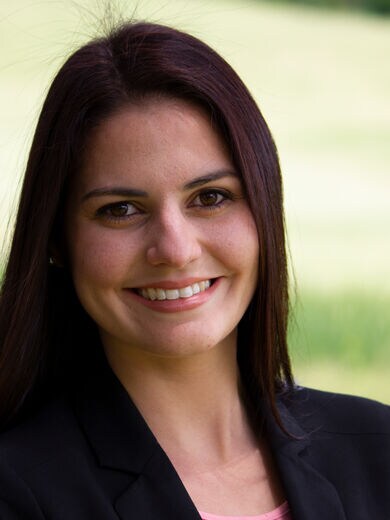
Then: I’m originally from Puerto Rico. When I was growing up, I was another Puerto Rican going to school with other Puerto Ricans. And I loved the sciences. Then I moved to Minnesota to pursue my Ph.D. because I wanted to become a professor. In my Ph.D. program, I was one of the few people of color. With such diversity in the U.S., I didn’t understand why my program didn’t reflect that. I became more aware of the systemic issues in education and how they affect people of color. I started talking to a Teach For America recruiter and I realized that I wanted to be a STEM teacher to bring science to all communities.
Start of the School Year: That “why” I had at the beginning of the corps is just one of the factors now. In Oklahoma, we’ve had a lot of budget cuts, and when that happens, a lot of the science programs aren’t prioritized. The state has a teacher shortage and relies on emergency teachers who are not fully prepared to be in the classroom. Emergency teachers will get preparation in math and reading but not science. The teachers who are prepared don’t have all the resources to fully bring science to life in the classroom. I have seen schools that have completely ignored the science curriculum because they prioritize math and reading. And that literally breaks my heart. When we limit science exposure to kids, we end up limiting the number of kids going into STEM. My “why” now is to break down those barriers.
Now: I want to make sure that I’m connecting with parents. I created a Facebook group for my fifth graders’ parents and this was an easier way to connect with them than through a phone call, email, Google Classroom or ClassDojo. I see a lot more likes, comments, questions and discussion in this space than in any other platform. Our students prefer TikTok but their parents are well-connected to Facebook. I cross-post information because every parent has a preferred platform. It’s harder for me but we’re in a crisis, and in this moment I have to make it easy for them.
Rozet [Sangalang] Cruz (Rhode Island ’17), second grade teacher at Paul Cuffee School in Providence, Rhode Island
Then: I grew up in the Philippines in a very poor area. People around me didn’t really think of school as mandatory. It was more of a privilege, because in the Philippines you needed to pay for your uniform, your supplies out of pocket. So when I moved here to Orange County, California, at the age of 7, it was a complete shock to me that school was mandatory for kids. I always think of myself as someone who just got lucky. My parents worked really hard so that we could live in a place where I could get a great education. Because of my experience, I wanted to be able to help other kids realize that they’re not limited just because of where they live or where they’re from.
Start of the School Year: One of the biggest problems I see is teacher retention. My little brother, who is seven years younger than me, had the same teachers as me. I sometimes reach out to my high school teachers who had my little brother, and it’s because of them I got to where I am. I got so lucky with the school I’m at now because there are so many teachers who have been there since the school opened 16 years ago. We have kids who went to our school who now work at our school.
Now: The most important thing that kids really need right now is consistency. I have families who are still working and many families who are not working anymore. They have so many things to worry about; they don’t need that extra-added thing of being a teacher for their kids. I’ve had so many parents reach out who struggle with balancing everything, so I need to be consistent for my kids. It’s my job now, more than ever, to help kids continue learning so that they’re ready for next year and not half a year behind when they start.
One Day magazine focuses on educational equity. What topics most interest you? Tell us.
Sign up to receive articles like this in your inbox!
Thanks for signing up!
Content is loading...


